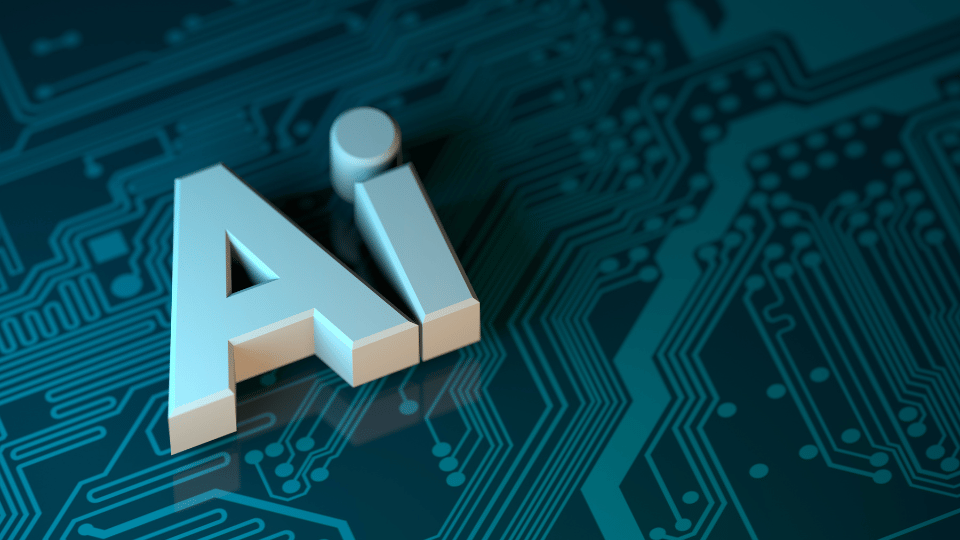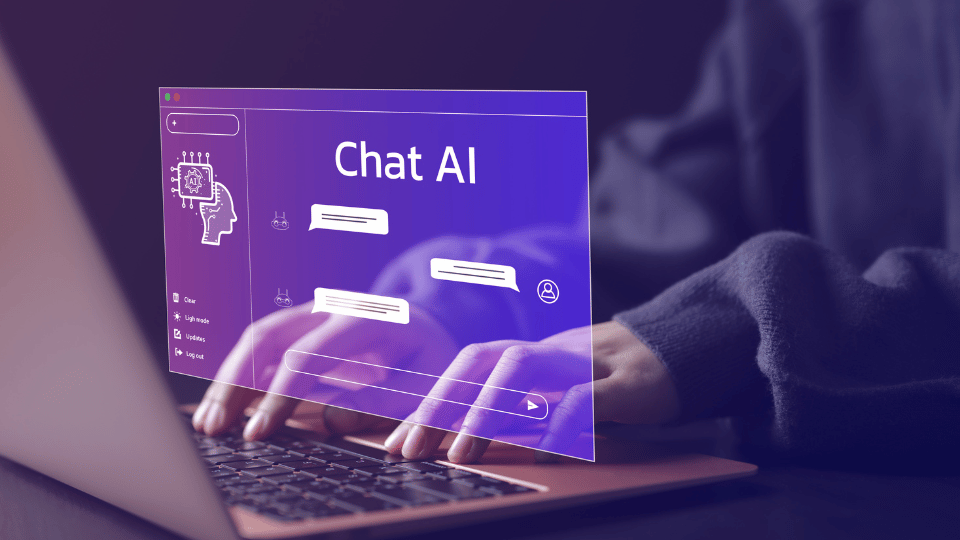Artificial Intelligence (AI) is a rapidly evolving field that has gained significant attention in recent years. As one of the key components of Industrial Revolution (IR) 4.0, AI is reshaping the future of global industries by driving innovation, efficiency, and growth. From self-driving cars to virtual assistants, AI has now become an integral part of our daily lives.

In this ultimate guide to artificial intelligence, we will explore the various aspects of AI, including its definition, history, types, applications, benefits, challenges, and limitations. We will also delve into the current state of AI in Malaysia, as well as the job and career opportunities it presents.
Additionally, we will discuss the latest research and news in the field of artificial intelligence, and provide information on online courses for those interested in learning more about this exciting field. This ultimate guide is guaranteed to provide you with a comprehensive overview of artificial intelligence and everything you need to know about it.
Artificial intelligence (AI) is a technology that allows computers and machines to simulate human intelligence and perform tasks that typically require human intelligence. AI involves the development of computer systems that can learn, reason, and make decisions like humans. It encompasses various subfields, including machine learning, natural language processing, computer vision, and robotics.

The goal of AI is to create intelligent machines that can understand, learn, and solve complex problems. AI systems can analyze large amounts of data, recognize patterns, and make predictions or recommendations based on the data. These systems can also understand and respond to human language, recognize objects and faces in images, and even perform physical tasks.
The history of artificial intelligence (AI) began in antiquity, with myths, stories, and rumors of artificial beings endowed with intelligence or consciousness. In the 1950s, the field of AI started to take shape. Alan Turing developed the Turing test in 1950, which aimed to determine if a machine could exhibit intelligent behavior indistinguishable from that of a human.
In 1956, John McCarthy organized the Dartmouth Conference, which is considered the birth of AI as a field of study. McCarthy also coined the term ‘artificial intelligence’ during this conference. During the 1950s and 1960s, AI research focused on symbolic or rule-based systems. These systems used logical reasoning and knowledge representation to solve problems.
In the 1970s and 1980s, AI faced a period of reduced funding and interest, known as the ‘AI winter.’ This was due to the inability of early AI systems to live up to the high expectations set by researchers and the public.
However, in the 1990s, AI experienced a resurgence with the development of machine learning algorithms and the availability of large datasets. Machine learning allowed AI systems to learn from data and improve their performance over time.
In recent years, AI has made significant strides in various domains. Deep learning, a subfield of machine learning, has achieved remarkable success in areas such as image recognition, natural language processing, and autonomous driving.
Today, AI is being applied in numerous industries and sectors, including healthcare, finance, transportation, and entertainment. It is revolutionizing the way we live and work, with advancements in robotics, virtual assistants, and smart devices.
The history of AI is a testament to the perseverance and innovation of researchers and scientists. From the early myths and speculations to the current state of advanced AI systems, the field has come a long way and continues to evolve at a rapid pace.
Artificial intelligence can be categorized into four main types based on their capabilities: reactive machines, limited memory machines, theory of mind, and self-aware AI.
Reactive machines are the most basic type of AI. They can only react to current situations and do not have the ability to store past experiences or use them to make future decisions. These machines are programmed to respond to specific inputs with specific outputs.
Limited memory machines have the ability to store and recall past experiences. They can use this stored information to make decisions and perform tasks. However, their memory is limited and they cannot learn from new experiences.
Theory of mind AI refers to machines that have the ability to understand and interpret the thoughts, emotions, and intentions of others. These machines can predict the behavior of others based on their understanding of their mental states.
Self-aware AI is the most advanced type of artificial intelligence. These machines not only have the ability to understand and interpret the thoughts and emotions of others, but also have a sense of self. They are aware of their own existence and can reflect on their own thoughts and actions.
AI is making significant advancements in the healthcare industry. It is being used for medical imaging analysis, disease diagnosis, drug discovery, and personalized medicine. AI-powered systems can analyze large amounts of medical data and provide accurate diagnoses, helping doctors make informed decisions and improve patient outcomes.

AI is revolutionizing the finance industry by automating tasks, improving fraud detection, and enhancing customer experience. AI algorithms can analyze financial data, predict market trends, and make investment recommendations. Chatbots powered by AI can provide personalized financial advice and assist customers with their queries.

AI is transforming the education sector by providing personalized learning experiences. AI in early childhood education assists teachers by providing data-driven insights into each child’s learning patterns, enabling more targeted and effective teaching strategies. Intelligent tutoring systems can adapt to individual student needs and provide tailored instruction. AI-powered chatbots can assist students with their queries and provide instant feedback. Virtual reality and augmented reality technologies powered by AI are also being used to create immersive learning environments.
AI is playing a crucial role in the transportation industry, particularly in the development of autonomous vehicles. AI algorithms enable vehicles to perceive their surroundings, make decisions, and navigate safely. AI is also being used for traffic management, optimizing routes, and predicting maintenance needs.
AI is revolutionizing the e-commerce industry by providing personalized recommendations, improving customer service, and streamlining operations. AI algorithms analyze customer data to understand preferences and make product recommendations. Chatbots powered by AI can assist customers with their queries and provide real-time support.
AI is transforming the manufacturing industry by improving efficiency, quality control, and predictive maintenance. AI-powered systems can analyze production data in real-time, identify anomalies, and optimize processes. Robots powered by AI can perform complex tasks with precision and speed, reducing human error and increasing productivity.
AI is proving to be an invaluable tool in the field of research, particularly for PhD students working on their theses. AI can assist in identifying research gap, finding relevant literatures, organizing data, and generating insights that help develop a robust research framework. The use of AI literature review generators is becoming increasingly popular, saving time and improving the quality of research by quickly summarizing relevant studies.
By automating tedious tasks such as data analysis, citation management, and even drafting preliminary reports, AI tools allow students to focus more on critical thinking and refining their study. Additionally, AI-driven software can help detect patterns in large datasets, simulate research scenarios, and provide suggestions for future research directions, ultimately revolutionizing effective thesis writing for PhD students using artificial intelligence.
These are just a few examples of the vast applications of artificial intelligence. AI is also being used in various other sectors such as agriculture, retail, social media, and more. The potential of AI is immense, and its impact on industries and society will continue to grow.
One of the primary benefits of AI is its ability to eliminate human error and reduce risk. AI systems are designed to perform tasks with precision and accuracy, minimizing the chances of mistakes that can occur due to human factors. This is particularly beneficial in industries where even a small error can have significant consequences, such as healthcare and finance.
Another advantage of AI is its 24/7 availability. Unlike humans, AI systems can work continuously without the need for breaks or rest. This ensures that tasks can be completed efficiently and without any interruptions, leading to increased productivity and faster turnaround times.
AI also enables unbiased decision-making. Human decision-making can be influenced by various factors, including personal biases and emotions. AI systems, on the other hand, rely on data and algorithms to make decisions, eliminating any biases and ensuring objective and fair outcomes.
Furthermore, AI can automate repetitive jobs, freeing up human resources to focus on more complex and creative tasks. Tasks that are monotonous and time-consuming can be efficiently handled by AI systems, allowing employees to engage in higher-value activities that require critical thinking and problem-solving skills.
Cost reduction is another significant benefit of AI. By automating tasks and streamlining processes, AI can help businesses save costs associated with labor, time, and resources. This can lead to increased efficiency and profitability.
AI plays a crucial role in data acquisition and analysis, especially when combined with big data analytics. With the ability to process and analyze vast amounts of data from diverse sources, AI systems can discover valuable insights and patterns that may not be easily identifiable by humans. This synergy between AI and big data analytics enables businesses to make more informed decisions based on comprehensive, data-driven insights, leading to improved performance and a competitive edge in the market.
Artificial Intelligence (AI) has made significant advancements in recent years, but it still faces several challenges and limitations. These challenges not only hinder the progress of AI but also raise ethical concerns and impact its widespread adoption.
One of the major challenges of AI is the lack of understanding and common sense. While AI systems can process vast amounts of data and perform complex tasks, they often struggle to understand context and make sense of ambiguous information. This limitation makes it difficult for AI to handle real-world scenarios that require human-like reasoning and intuition.
Another limitation of AI is the absence of creativity and originality. AI systems are designed to analyze existing data and make predictions based on patterns and algorithms. However, they lack the ability to think creatively and come up with innovative solutions. This limitation restricts the potential of AI in fields that require creative thinking, such as art, music, and literature.
Ethical and moral decision-making is another challenge faced by AI. AI systems are programmed to make decisions based on algorithms and data analysis. However, they lack the ability to consider ethical implications and make moral judgments. This raises concerns about the potential misuse of AI and the impact it may have on society.
Inaccurate data analysis is a significant limitation of AI. AI systems heavily rely on data to make predictions and decisions. If the data used is inaccurate or biased, it can lead to incorrect results and flawed decision-making. This limitation highlights the importance of ensuring high-quality and unbiased data for AI systems to perform effectively.
Another challenge is the bias in algorithmic decision-making. AI systems can unintentionally inherit biases present in the data they are trained on, leading to biased outcomes. This bias can have serious implications in areas such as hiring, lending, and criminal justice, where fair and unbiased decision-making is crucial.
The relatively high cost of implementing AI systems is also a limitation. Developing and maintaining AI technologies can be expensive, making it inaccessible for smaller organizations and developing countries. The cost-benefit analysis of implementing AI needs to be carefully considered to ensure its viability and affordability.
AI systems lack emotions and are purely driven by logic and algorithms. While this can be advantageous in certain applications, it limits their ability to understand and respond to human emotions. This limitation hinders the development of AI systems that can effectively interact with humans in a natural and empathetic manner. This gap fuels the ongoing debate between artificial intelligence versus human intelligence.
Adversarial attacks pose a significant challenge to AI systems. Adversarial attacks involve intentionally manipulating input data to deceive AI systems and cause them to make incorrect predictions or decisions. This poses a security risk and highlights the need for robust and resilient AI systems.
While AI has made remarkable progress, it still faces several challenges and limitations. Addressing these challenges is crucial for the responsible and ethical development and deployment of AI technology.
Artificial Intelligence (AI) has been gaining significant momentum in Malaysia in recent years. The Malaysian government has been actively promoting the adoption and development of AI in various sectors, including government services.
As of October 2023, there are approximately 121 AI-focused companies that have been profiled by the Malaysia Digital Economy Corporation (MDEC). This indicates the growing interest and investment in AI technology in the country. The integration of AI into various industries in Malaysia has the potential to revolutionize processes and improve efficiency. It has been implemented in sectors such as education, social systems, agriculture, food security, and the digital economy.
To further support the growth of AI in Malaysia, the country is establishing its first AI learning center called the AI Faculty at Universiti Teknologi Malaysia. This initiative aims to provide education and training opportunities for individuals interested in pursuing a career in AI. The awareness of AI among Malaysians has also been steadily increasing. In the third quarter of 2023, the awareness rate was at 84%, indicating a growing interest and understanding of AI technology.
In terms of education, there are 16 universities in Malaysia that offer AI degrees and courses. Some of the notable universities include the University of Nottingham Malaysia and Universiti Putra Malaysia (UPM). Studying AI in Malaysia provides students with the opportunity to gain knowledge and skills in this rapidly evolving field.
As AI continues to advance, the demand for professionals with expertise in this field is also increasing. There are a wide range of job roles and career opportunities available in the field of Artificial Intelligence.
One of the popular job roles in Artificial Intelligence is an AI engineer. AI engineers are responsible for developing and implementing AI solutions and algorithms. They work on designing and building intelligent systems that can perform tasks without human intervention. AI engineers need to have a strong background in computer science, programming, and machine learning.
Another in-demand job role is a data scientist. Data scientists use AI and machine learning techniques to analyze and interpret complex data sets. They are responsible for extracting valuable insights from data and using them to make informed business decisions. Data scientists need to have strong analytical and statistical skills, as well as expertise in programming and data visualization.
Big data engineers are also highly sought after in the field of Artificial Intelligence. They are responsible for managing and processing large volumes of data to support AI applications. Big data engineers need to have a deep understanding of data management and processing technologies, as well as programming skills.
Other job roles in Artificial Intelligence include machine learning engineer, robotics engineer, AI product manager, and AI data analyst. These roles require a combination of technical skills, domain knowledge, and problem-solving abilities.
In terms of career opportunities, the field of Artificial Intelligence offers a wide range of options. Professionals in this field can work in various industries such as healthcare, finance, manufacturing, and transportation. They can also work in research and development, academia, or start their own AI-based ventures.
The demand for AI professionals is expected to continue growing in the coming years. According to a report, the global AI market is projected to reach $190.61 billion by 2025. This indicates a significant growth potential for individuals pursuing a career in Artificial Intelligence.
Artificial intelligence (AI) is a rapidly evolving field, with new research and advancements being made on a regular basis. Researchers and scientists around the world are constantly working on developing new AI technologies and improving existing ones.
One of the latest trends in AI research is the use of deep learning algorithms. Deep learning is a subset of machine learning that focuses on training artificial neural networks to learn and make decisions on their own. This technology has been used in various applications, such as image recognition, natural language processing, and autonomous vehicles.
Another area of AI research that has gained significant attention is reinforcement learning. Reinforcement learning is a type of machine learning where an agent learns to make decisions by interacting with its environment and receiving feedback in the form of rewards or punishments. This approach has been successfully applied in areas such as game playing and robotics.
In addition to these advancements, there have been several breakthroughs in the field of natural language processing (NLP). NLP is a branch of AI that focuses on enabling computers to understand and process human language. Recent research has led to the development of advanced NLP models, such as OpenAI’s GPT-3, which can generate human-like text and perform language-based tasks with high accuracy.
The latest news in the field of AI includes the development of AI systems that can create simulations to train robots in the real world. These systems use video or photos to generate simulations that help robots learn and adapt to different environments. This technology has the potential to revolutionize industries such as manufacturing, healthcare, and transportation.
Furthermore, researchers are also working on improving the interpretability of AI models. AI models are often considered black boxes, meaning that it is difficult to understand how they arrive at their decisions. MIT researchers have developed a multimodal agent called MAIA, which can design experiments to better understand AI models and make them more interpretable.
Artificial intelligence is a rapidly growing field, and there are numerous online courses available to help individuals learn and develop their skills in this area. These courses cover a wide range of topics, including machine learning, data analysis, neural networks, and more.
One popular online platform for artificial intelligence courses is Udemy. They offer a variety of courses that walk you through the process of combining deep learning, machine learning, and other AI technologies to improve business operations. These courses are designed to provide practical knowledge and skills that can be applied in real-world scenarios.
Another platform that offers artificial intelligence courses is edX. They partner with top institutions to provide high-quality education in various fields, including AI. Their courses cover core AI concepts such as deep learning, machine learning, and neural networks. By enrolling in these courses, individuals can gain a solid foundation in AI and develop the skills needed to excel in this field.
In addition to these platforms, there are also free online courses available for individuals who want to learn about artificial intelligence. For example, Building AI is a free online course that teaches the actual algorithms used in creating AI methods. This course is suitable for individuals with basic Python programming skills and provides a hands-on learning experience.
These courses provide the opportunity to learn from experts in the field, gain practical skills, and stay updated with the latest advancements in AI. By enrolling in these courses, individuals can enhance their career prospects and contribute to the development of artificial intelligence.
In conclusion, artificial intelligence is a rapidly evolving field that has the potential to revolutionize various industries and aspects of our lives. It is a technology that enables machines to perform tasks that typically require human intelligence, such as problem-solving, decision-making, and learning. Throughout this guide, we have explored the definition and history of artificial intelligence, the different types of AI, its applications in various fields, and the benefits it offers. We have also discussed the challenges and limitations that come with AI technology.
Hence, it is no doubt that artificial intelligence holds immense potential to transform industries, improve efficiency, and enhance our lives. However, it is essential to address the challenges and ethical considerations associated with AI. By fostering responsible development and deployment of AI, we can harness its benefits and create a future where humans and machines work together to achieve remarkable outcomes.